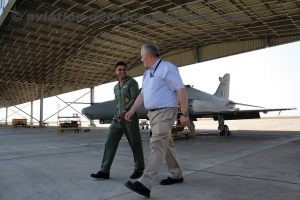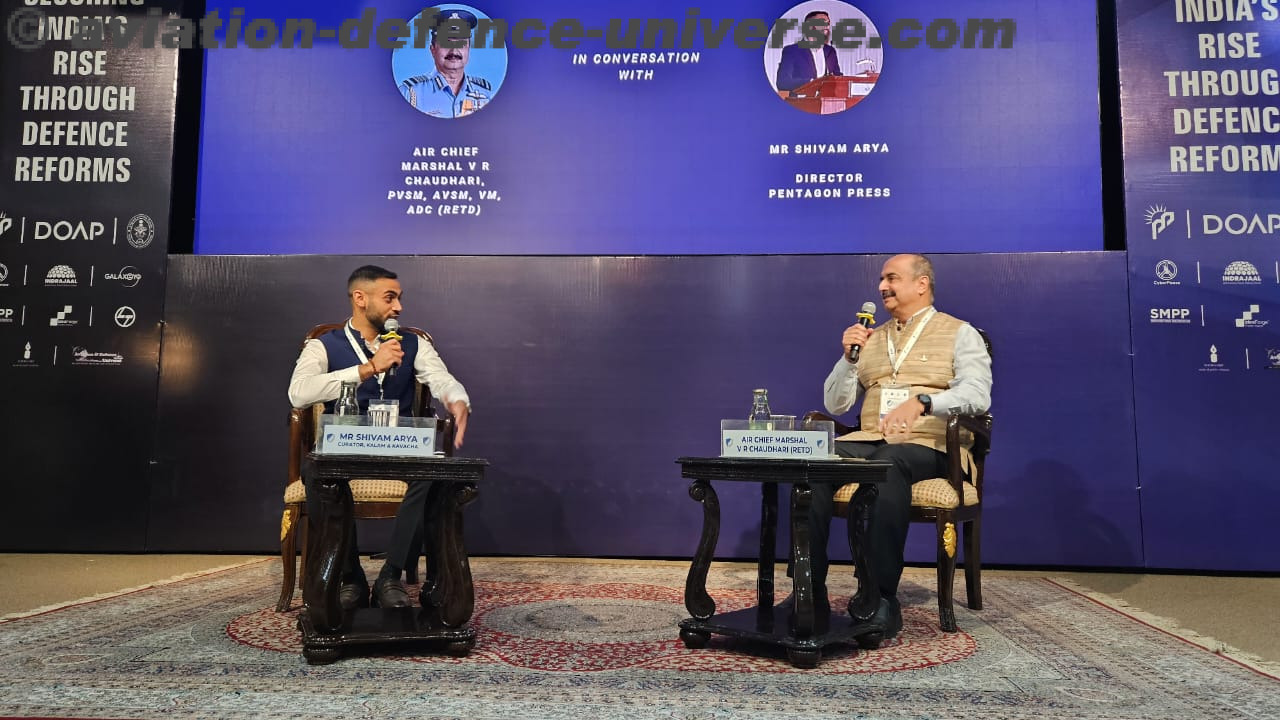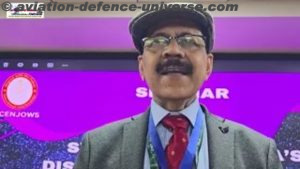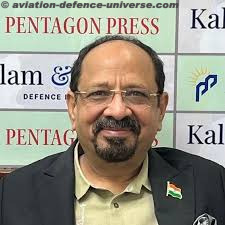 Kishore Jayaraman, President, Rolls-Royce, India and South Asia
Kishore Jayaraman, President, Rolls-Royce, India and South Asia
New Delhi. 07 October 2018. Rolls-Royce is a leading industrial technology company. We are pioneers in cutting-edge technologies that deliver the cleanest, safest and most competitive solutions to meet our planet’s vital power needs. Around the world, around the clock, our Defence business provides the power and support our customers need to fulfill their missions.
Pioneering the power that matters
Rolls-Royce has played a pivotal role in India’s growth story. Our long and distinguished association with Indian Air Force started in 1933, when IAF’s Westland Wapiti took to the skies powered by our Bristol Jupiter engines. Since then, we have further built and strengthened our relationship to turn it into one that will stretch far into the future. Our 60 years old partnership with HAL which started with the licensed production of Orpheus engines is one of the longest in the history of aerospace in India.
With Indian Air Force undergoing its modernisation programmes, Rolls-Royce is committed to providing it with the best value, and highest quality products possible. We will continue to support today’s fleets and strive to further increase their capability.
We are also keen to play a role in India’s indigenisation ambitions. Today, we are already nurturing skills, developing local supplier base and building capabilities, and going forward, we are ready to eventually embrace opportunities to co-develop and co-manufacture for the growing aerospace and defence sector with the right Indian strategic partners.
Proud partners of the Indian Armed Forces
Globally, we support 160 armed forces in over 100 countries. This gives us a unique opportunity to share our global experience and best practices in order to better support the Indian Armed Forces.
In India, more than 750 Rolls-Royce engines of 10 engine types are powering aircraft of the Indian military. Our engines power a wide variety of aircraft in the inventory of the Indian Air Force – from combat and strike aircraft (the Jaguar, powered by the Adour Mk811) to trainers (Hawk Advanced Jet Trainer, powered by Adour Mk871) to strategic airlift aircraft (C-130J Hercules, powered by AE 2100) and even VVIP and Surveillance aircraft (ERJ145, powered by AE 3007).
 Rolls-Royce provides the highest possible levels of support to the Adour Mk871, which powers the Hawks Advanced Jet Trainer, on which the next generations of our airborne guardians are trained. Our Adour Mk804/Mk811 powering Jaguar was made, and continues to be supported, in India today by HAL, with Rolls-Royce support. This is an excellent example of Rolls-Royce’s long-term commitment to developing the Indian Aerospace industry and delivering Indian self-reliance.
Rolls-Royce provides the highest possible levels of support to the Adour Mk871, which powers the Hawks Advanced Jet Trainer, on which the next generations of our airborne guardians are trained. Our Adour Mk804/Mk811 powering Jaguar was made, and continues to be supported, in India today by HAL, with Rolls-Royce support. This is an excellent example of Rolls-Royce’s long-term commitment to developing the Indian Aerospace industry and delivering Indian self-reliance.
In addition to this, our field service representatives (FSRs) work in close support with IAF personnel to maximise the availability of engines on wings and provide on-ground technical advice directly to our customers, thereby drastically reducing maintenance and overhaul times.
Enabling longer, effective missions
Today, Rolls-Royce engines with class-leading fuel efficiency and reliability enable military aircraft to stay on mission for longer. Our MissionCare® programmes have been proven to maximise the number of engines available to fly while also significantly reducing the cost of support.
Way Forward
For the future, we are committed to working more closely with our stakeholders to enable them benefit from our innovative products and technologies.
The vision for the future will be not just technology transfers and manufacturing but on creating a broader ecosystem that includes co-design, co-development, co-manufacturing, supply chain and support. This entails capability creation and skilling rather than just technology transfer and it is something that Rolls-Royce considers one of its core strengths.
For the Indian Defence industry to continue on its growth journey there is a need to develop industry-specific skills and supporting infrastructure. Greater collaboration between global OEMs and the Indian private sector, with increased technology transfer, would further enhance India’s chances to create a vibrant defence manufacturing sector that will support both domestic and export requirements.





























































































































